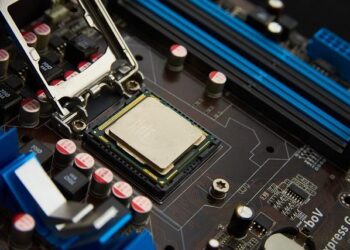In the realm of psychoanalysis, the legacy of Sigmund Freud looms large, casting a long shadow over the field he pioneered. However, one of the most intriguing narratives within this storied tradition is that of his daughter, Anna Freud, who emerged not only as a respected psychoanalyst in her own right but also as a transformative figure in the practice of child analysis. While the foundational concepts of psychoanalysis developed by her father remain influential, Anna Freud’s unique approach to treatment diverged considerably from his, reflecting her distinct understanding of human psychology and the nuances of childhood advancement. this article delves into the key differences between Anna Freud’s analytic style and that of her father, highlighting how her contributions reshaped the therapeutic landscape and opened new avenues for understanding the complexities of the young mind. Through a careful examination of her theories and methodologies,we can appreciate Anna Freud’s pivotal role in evolving psychoanalytic practice and her enduring impact on the field of psychology.
Exploring the Foundations of Anna Freuds Unique Analytic Approach
Anna Freud’s analytic approach diverges significantly from her father’s foundational theories, embracing a more nuanced understanding of the unconscious, particularly in the context of child psychology. While Sigmund Freud laid the groundwork for the principles of psychoanalysis, Anna emphasized the importance of developmental stages and the social relationships that shape a child’s experiences. Her method not only integrated conventional psychoanalytic concepts but also responded to the needs of the evolving psychoanalytic field by introducing innovative concepts such as the child’s ego and its adaptive functions. This focus provided a framework that was more accessible and applicable to the younger population, allowing for a more tailored therapeutic approach.
Central to her methodology were several key elements that distinguished her practice:
- Emphasis on Defense Mechanisms: Anna Freud expanded on her father’s theory by detailing specific defenses employed by children, enhancing the understanding of their reactions to anxiety and inner conflict.
- Play Therapy: She recognized play as a vital medium for children to express their feelings and thoughts, leading to more effective therapeutic interactions.
- Observation of the Child: Unlike her father’s focus on adult analysis, her approach involved direct observation of children in various settings, providing richer insights into their developmental needs.
- Collaboration with Parents: Anna stressed the importance of involving parents in the therapeutic process, advocating for a comprehensive view of the child within their familial context.
| Feature | Anna Freud | Sigmund Freud |
|---|---|---|
| Focus on Developmental Psychology | Yes | No |
| Use of Play Therapy | Yes | No |
| Parent Involvement | Emphasized | Limited |
| Observation Techniques | Primary Method | Secondary Method |

Contrasting Anna and Sigmund Freud: Key Philosophical Divergences
While both Anna Freud and her father Sigmund freud contributed significantly to the field of psychoanalysis, their approaches diverged markedly, particularly in their emphasis on child psychology and the therapeutic relationship. Anna expanded upon her father’s theories by focusing on the importance of defense mechanisms, which she categorized and elaborated on comprehensively. Unlike Sigmund, who often concentrated on the unconscious mindãs structured components, Anna brought a more practical, almost clinical perspective, prioritizing the developmental stages of children and their day-to-day realities. Her work emphasized the value of play therapy and the therapeutic alliance, and also a empathetic understanding of the childãs viewpoint, which was somewhat absent from Sigmund’s more theoretical framework.
These philosophical divergences also extend into their views on education and treatment. Sigmund Freud placed significant importance on the analyst’s authority within the therapeutic process, often maintaining a more distant stance. in contrast, Anna cultivated a collaborative environment, seeking collaboration between the therapist and the child which allowed for an interactive therapeutic process. This approach not only altered the dynamics within therapy but also set the groundwork for modern child therapy practices, reinforcing the concept that treatment should adapt to the unique needs of each child rather than adhering strictly to established psychoanalytic doctrines. Below is a comparative overview of their differing perspectives:
| Aspect | Sigmund Freud | Anna Freud |
|---|---|---|
| Focus | unconscious structures | Child development |
| Therapeutic Style | Authoritative distance | Collaborative interaction |
| Key Concept | Oedipus complex | defense mechanisms |
| Methodology | Talk therapy | Play therapy |

The Role of Play in Anna Freudãs Child Psychoanalysis
In Anna Freudãs framework of child psychoanalysis, play assumes a pivotal role, serving as both a therapeutic tool and a means of expression for young patients.Unlike her father, who emphasized a more structured analytic approach, Anna recognized that children might not have the verbal capacity to articulate their thoughts and feelings.Thus, she transformed play into a elegant language through which children could convey their internal conflicts, relationships, and emotions. This unique approach allowed therapists to observe childrenãs interactions with toys and materials, providing invaluable insights into their psychological states. Key aspects of play in her methodology include:
- Facilitated Expression: Children often reveal their innermost thoughts through symbolic play.
- Therapeutic Engagement: Interactive play establishes a rapport, making children feel safe and understood.
- Emotion Regulation: Through play, children can experiment with emotions and develop coping strategies.
Furthermore, Anna Freud introduced the concept of play therapy, which differs significantly from traditional talk therapy. She believed that by engaging children in play, therapists could access deeper layers of consciousness without the constraints of adult verbalization. This method not only democratized the therapeutic process but also emphasized the importance of the therapeutic relationship. The table below summarizes how play functions in this distinct approach:
| aspect of Play | Therapeutic Significance |
|---|---|
| Symbolic Play | Facilitates understanding of emotional conflicts. |
| Role-Playing | Encourages perspective-taking and empathy. |
| Creative expression | Allows for exploration of feelings in a safe environment. |

Emotional Connections: The Influence of Anna Freuds Feminine Perspective
Anna Freudãs approach to psychoanalysis diverged significantly from that of her father, Sigmund Freud, particularly in her emphasis on emotional connections and the importance of relationships in mental health. Where Sigmund focused predominantly on the internal drives and desires, Anna directed her lens towards the external social interactions and emotional bonds that shape an individual’s psyche. This shift allowed her to explore how feminine perspectives manifest in therapeutic settings, making way for an understanding of psychological development that honored the nuances of female experience. By examining the relational aspects of human psychology, she underscored the role of nurturance, attachment, and the influence of caregiving in emotional well-being.
In a clinical setting, Annaãs methodology favored an open dialog that encouraged patients to express their feelings and relationships. She believed that by fostering a sense of safety and validation, therapists could help clients navigate their emotions more effectively. Her practice brought forth several principles, including:
- Empathy: Understanding and relating to patientsã experiences on an emotional level.
- Active listening: Creating an environment where clients feel truly heard.
- Supportive interaction: Encouraging healthy emotional expressions during therapy.
These elements reflect Anna Freudãs commitment to a holistic understanding of individuals, laying the groundwork for future developments in psychotherapy that continue to integrate emotional health with traditional psychoanalytic techniques. As a pioneer,she not only honored the legacy of her father’s work but also enriched the field with a vital feminine perspective that resonates in contemporary practice.

Practical applications of Anna Freuds Techniques in Modern Therapy
anna Freud’s contributions to psychoanalysis extend far beyond her father’s foundational theories, offering a unique lens through which modern therapists can address the complexities of emotional and psychological issues. Her techniques, particularly in the realm of child therapy, emphasize understanding the developmental aspects of mental health. Practitioners today employ techniques developed by Freud, such as play therapy and defense mechanism identification, which are vital when working with children. These methods help therapists create a safe space for young clients to express their emotions and thoughts, allowing for deeper engagement in the therapeutic process.
Furthermore, her approach to ego psychology remains relevant, particularly in addressing issues of self-esteem and resilience in a contemporary context. Therapists can utilize her frameworks to identify and nurture the ego strengths of their clients, enhancing coping mechanisms amidst modern stressors. For example,in therapy settings,professionals might use the following techniques:
| Technique | Description |
|---|---|
| Defense Mechanism Exploration | Helping clients recognize their personal defense mechanisms and how they impact relationships. |
| play Therapy | Using creative play to allow children to express feelings that are difficult to communicate verbally. |
| Dream Analysis | Encouraging clients to explore their dreams in relation to their current emotional states. |
By integrating these techniques, modern therapists not only pay homage to Anna Freud’s innovative approaches but also adapt her insights to solve contemporary psychological challenges. The adaptability of her methods allows for a tailored therapeutic process that can motivate clients toward meaningful personal growth, validation, and healing within today’s societal context.

Recommendations for Integrating Anna Freuds Insights into Contemporary Practice
Integrating Anna Freud’s insights into contemporary practice requires a comprehensive understanding of her unique approach to psychoanalysis, which places significant emphasis on the developmental perspective of the individual. Practitioners should consider the following methodologies:
- Play Therapy Techniques: Utilize play as a medium for children to express their emotions and thoughts, reflecting Freud’s belief in the importance of symbolic play as a form of interaction.
- focus on Defense Mechanisms: Incorporate discussions around defense mechanisms in therapy sessions, helping clients identify and cope with their psychological barriers.
- Emphasis on the Ego: Strengthen the ego through interventions that enhance self-awareness and adaptive coping strategies,rather of concentrating heavily on the id or the superego.
Moreover, integrating her insights calls for the establishment of collaborative relationships with clients, fostering an environment of trust and openness. It might potentially be beneficial to adopt an integrative framework which includes:
| principle | Application in Practice |
|---|---|
| Developmental Focus | Assess life stages to tailor interventions appropriately for varying age groups. |
| Parental Involvement | Engage family systems in therapy, fostering a holistic approach to child development. |
| Emotional Literacy | Encourage clients to articulate and understand their emotional experiences, promoting healthier coping mechanisms. |

To Conclude
Anna Freud’s unique analytic style marks a significant departure from the methodologies pioneered by her father, Sigmund Freud. While both contributed profoundly to the field of psychoanalysis, Anna’s emphasis on the developmental aspects of the psyche and her focus on the therapeutic relationship shed light on new dimensions of psychological understanding.Her innovative techniques and concepts not only built upon classical theories but also paved the way for modern psychoanalytic practices,particularly in child psychology. as we continue to explore the rich tapestry of psychoanalytic thought, Anna Freud’s contributions remind us of the importance of evolving our approaches to better serve individuals in the therapeutic arena. Her legacy thus stands as a testament to the ongoing dialogue within psychology, where differing perspectives contribute to a more comprehensive understanding of the human mind.
















